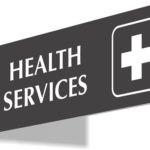THE Society for Family Health, in collaboration with Oyo State government, has opened a one-stop-shop clinic to ensure that it provides clinic-based and mobile services.
British Prime Minister, Theresa May wins confidence vote
The one-stop-shop clinic, under the global fund project, is to provide ante retroviral (ARV) therapy and complementary laboratory services for men that have sex with men; people that inject drugs and the female sex workers and as well as their partners.
Permanent Secretary, Oyo State Ministry of Health, Dr Yemisi Iyiola , while inaugurating the clinic in Ibadan, said the innovation would improve access to care for these groups of people since it would be providing ARV services, screening services and follow-up.
Dr Iyiola, speaking through the director, Primary Health Care, Dr Wole Lawal, stated that its complementary clinical services will also ensure they monitor their viral load while they receive services as in a hospitable manner.
He said the pilot clinic, which he described as laudable, would ensure that the state meets the UNAID’s target of ensuring that at least 90 per cent of people know their HIV status, access ARV and adhere to their medications.
Executive secretary, Oyo State Agency for the control of AIDS, Mr Obatunde Oladapo, in his keynote address stated that ARVs are primarily to increase the health and wellbeing of people living with HIV.
Oladapo, who spoke through the agency’s project manager, Dr Olukayode Ogunkunle, said many studies have also demonstrated the use of ARVs as preventive medicines in curtailing the spread of HIV.
He commended SFH for the facility which he said would ensure easy access to treatment for the key population.
“When ARVs are used consistently and correctly, it will lead to viral suppression and ensure zero HIV transmission” he noted.
Oladapo stated that when considering putting a stop to the spread of HIV in Nigeria, especially Oyo State, the facility is a key tool to ensure people who ordinarily would not have been to access conventional health facilities are attended to.”
Earlier, SFH’s regional manager for Southwest, Mrs Funke Adewoyin, had stated that services at the facility are free for key populations and their partners.
Adewoyin said the one-stop-shop clinic was intended as a safe space for them, adding that the clinic should not be seen only as a place for HIV treatment but for comprehensive health of all its clients.
She said the SFH decided on the clinic based on preliminary studies in the state that showed a moderate number of key populations in the state and the need for them to have a continuum of care for HIV-positive people.






